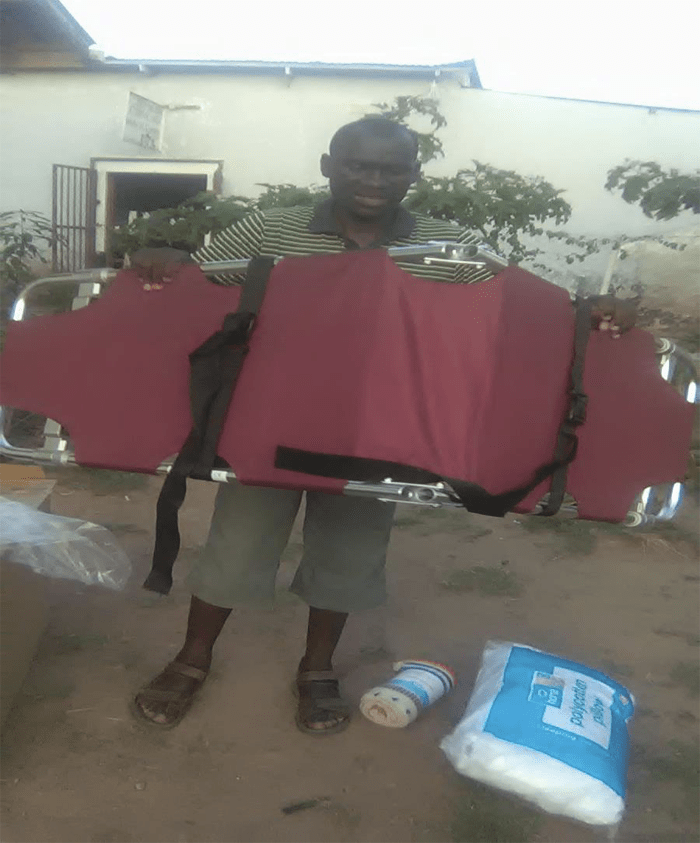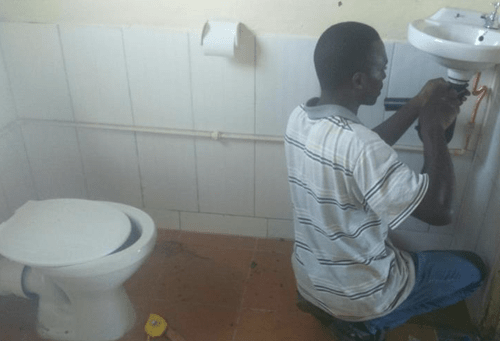Educational institutions worldwide are continually striving to create the most inclusive environments possible for their students. At times, regardless of their commitment to inclusivity, a lack of resources and the surrounding environment can greatly hinder an institution’s ability to meet the needs of all students, especially those with disabilities.
As part of an effort to ensure that students at two separate educational facilities in Africa have the appropriate apparatus and accessibility they need, in 2017, the World Forgotten Children Foundation (WFCF) supported the African Community Project by funding US$ 250 to purchase a stretcher for the Luyaba Primary School in Zimba District and an additional US$ 1,295 for the construction of an additional lavatory at the Chibolya Community School in Mazabuka District.
The Purchase of a Stretcher for the Luyaba Primary School

The Luyaba Primary School in Zimba District located 56 kilometers from Zimba is one of the pilot schools in Zambia for ‘Inclusive Education’. Its programs provide education to children with various disabilities and physical handicaps. The school currently has eight epileptic students enrolled. These children have constant epileptic seizures and when one of these students has a seizure the school had no device to carry the student to the sick room for observation. Because these seizures can happen anywhere and at any time, it was critical that an apparatus (a stretcher) be provided for their transport. In the photo to the right, one of the caretakers can be seen holding the new stretcher purchased by WFCF. Having this stretcher provides a way of transporting a student to a separate room and ensures their comfort, treatment, and privacy.
The Construction of a More Accessible Lavatory for the Chibolya Community School
The Chibolya Community School in Mazabuka District started as a small pre-school which was set up in response to a lack of facilities and then in early 2012, a new two-classroom primary school building was added as well as a nursery building. The children staying in the handicap dormitory had to exit the building (oftentimes late at night in the dark) to access the main lavatory facilities used by the whole school. As such, there was a need for a handicap accessible lavatory facility to be built in their dormitory.

Through the lavatory construction project (pictured in the photo to the left), the Chibolya Community School now has a new sanitation system which has allowed a lavatory to be built inside the building that houses the handicapped students’ dormitory. This handicap accessible lavatory eliminates the need for the children to exit the building after dark to visit the main lavatory facilities. The general contractor who built the new bathroom block at the school was hired to install the toilet, sink, accessibility accessories and finish work (laying the ceramic tiles and painting). This lavatory is specifically designed for the use of the handicapped students and caregivers living in the dormitory. The room is large enough to accommodate mobility devices’ (wheelchairs or crutches) and the assisting caregiver.
Those at the African Community Project have commented that, “these two projects have provided much improvement to the well-being of the children at Luyaba Primary School in Zimba District and Chibolya Community School in Mazabuka District. For all involved in this project it has come at a vital time-- showing compassion to children with disabilities. From the children, their families, caregivers, and the African Community Project, we thank the World Forgotten Children Foundation (WFCF) for your generous donation. Projects like this are ongoing and part of the African Community Project mandate to support the well-being of members of our community and to their families as well.”
For more information on WFCF’s project collaborations such as these, please visit the Funded Projects page on the WFCF website.


